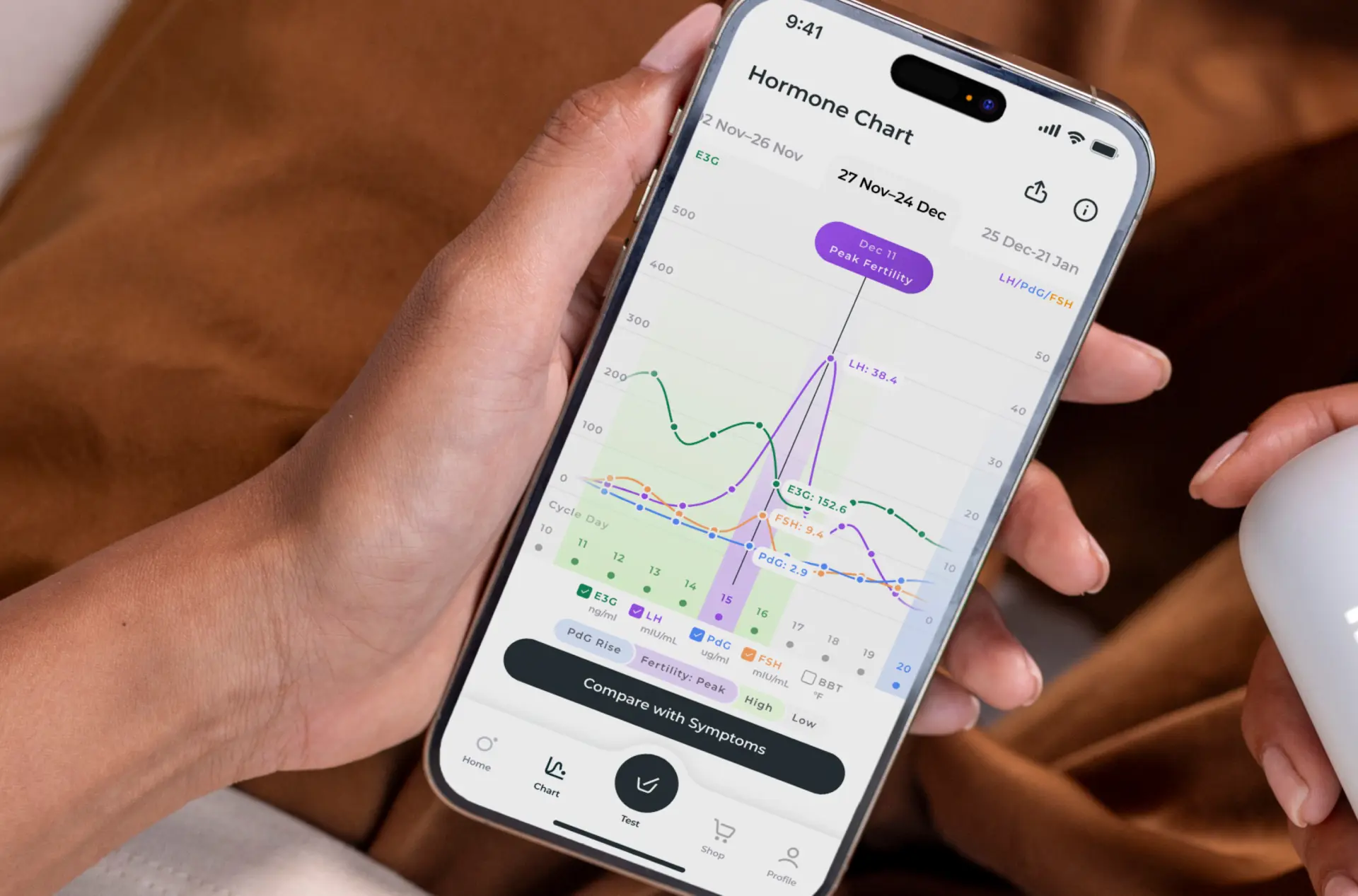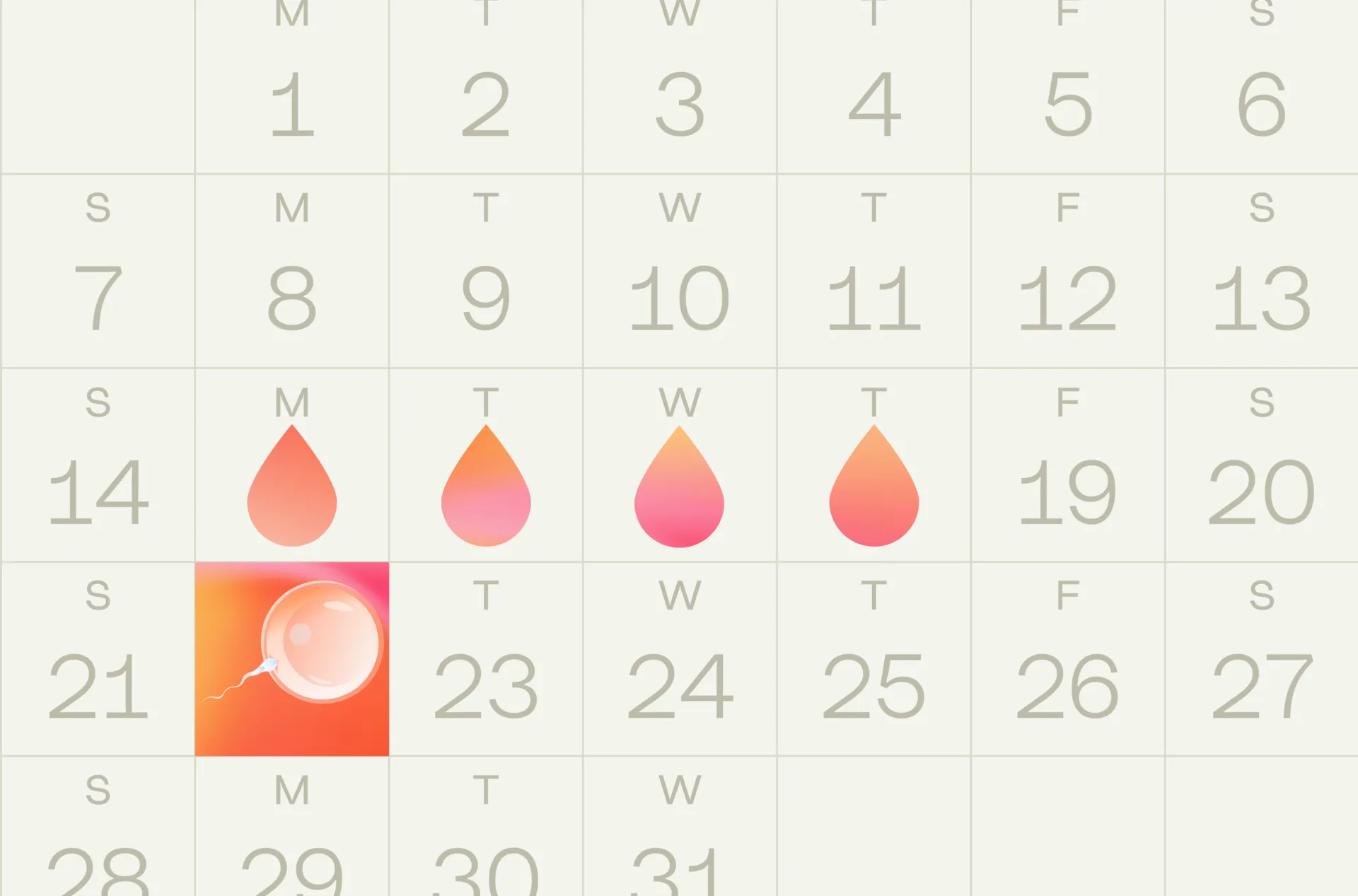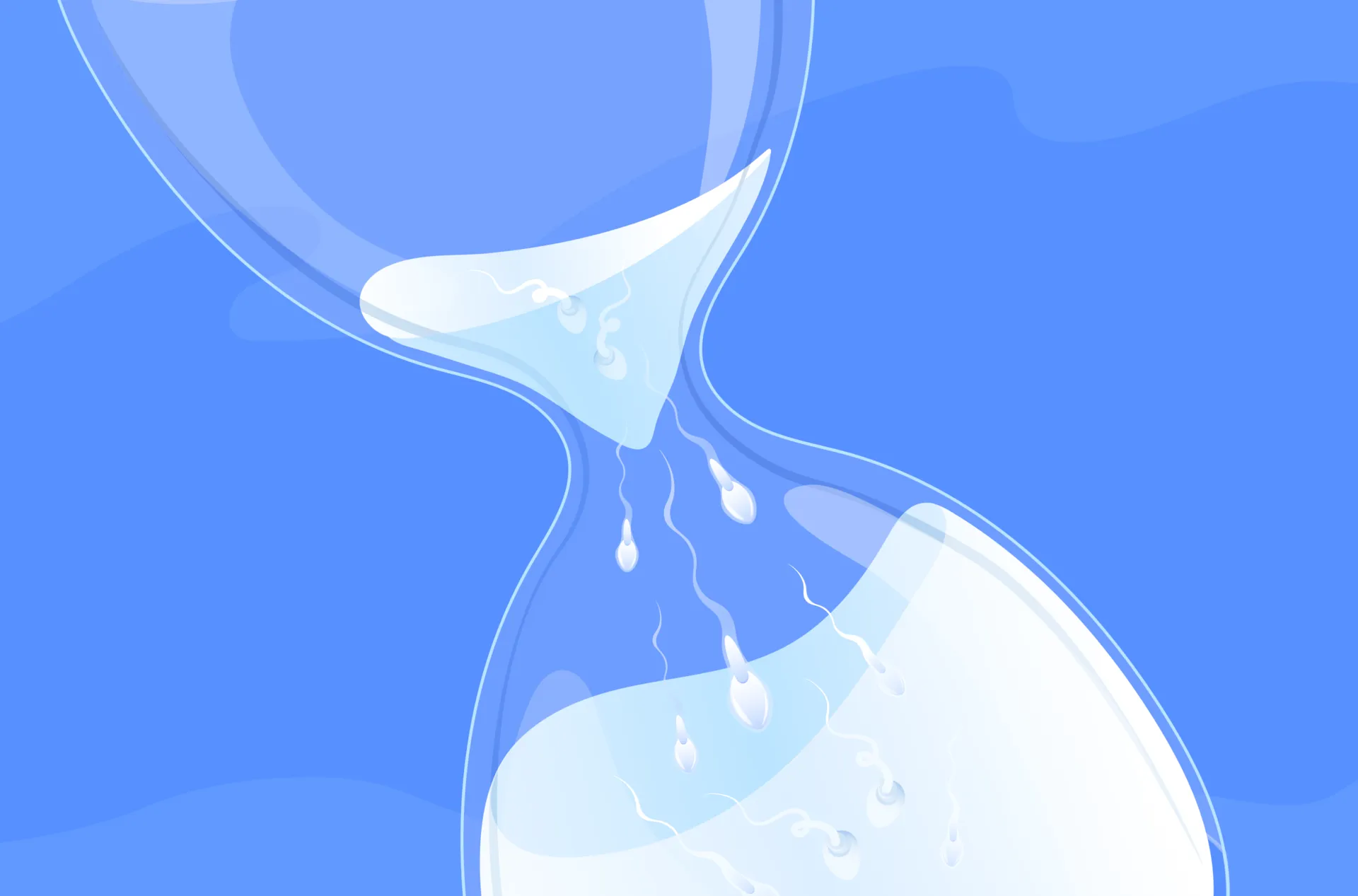Content table
If you’ve ever had a chemical pregnancy, you know the emotional toll it can take. Getting a positive pregnancy test, only to have it turn negative a few days later can be crushing.
But as heartbreaking as a chemical pregnancy can be, there is hope. Getting pregnant after a chemical pregnancy is possible – and can happen quite quickly.
So if you’ve had a chemical pregnancy and are ready to start trying to conceive again, read on. In this article, we’ll break down what a chemical pregnancy is and offer tips for getting pregnant after having one.
Key Takeaways
- A chemical pregnancy, or biochemical pregnancy, is a very early miscarriage that occurs before the fifth week.
- In a biochemical pregnancy, an embryo forms and implants, but then stops developing.
- Many women don’t even realize they’ve had a chemical pregnancy. Others may get a positive pregnancy test early, only to have it turn negative a few days later.
- Experiencing a chemical pregnancy can be devastating. But it doesn’t mean your next pregnancy won’t be successful.
- The most common cause of early pregnancy loss is chromosomal abnormalities, which happen at random.
- Ovulation can happen as soon as two weeks after a chemical pregnancy.
- Physically, you can start trying to conceive again 2-3 weeks after a chemical pregnancy. Despite having an early miscarriage, you may need time to emotionally heal.
- When you’re ready to start trying to conceive again, having a healthy lifestyle can improve your chances of getting pregnant. A healthy diet and prenatal vitamins are crucial. Regular exercise, reducing stress, getting plenty of sleep, and tracking your hormones can also help.
What Is a Chemical Pregnancy?
A chemical pregnancy, also known as a biochemical pregnancy, is a very early pregnancy loss that happens before the fifth week. Chemical pregnancies occur so early on that many women don’t even realize they’ve had one.
During a chemical pregnancy, an embryo develops and implants into your uterine wall. Once implanted, the placenta starts forming, producing human chorionic gonadotropin hormone (hCG).
This hormone is what pregnancy tests detect in your blood or urine to deliver a positive result.
Unfortunately, in a chemical pregnancy, the embryo stops developing shortly after implantation. This causes hCG levels to fall rapidly.
So if you took a pregnancy test and got a positive result, followed by a negative result soon after – you may have had a chemical pregnancy.
How Common Are Chemical Pregnancies?
Roughly a quarter of all pregnancies end in miscarriage. And it’s estimated that chemical pregnancies make up 50-75% of all miscarriages.
But just because chemical pregnancies are common, doesn’t mean they’re easy. Going through any pregnancy loss can bring up an onslaught of emotions, no matter how early they occur.
Here’s the good news: after an early miscarriage, most women go on to have a successful pregnancy.
In fact, about 85% of women who’ve had one miscarriage go on to have a healthy pregnancy the next time, as well as 75% of those who’ve had two or three miscarriages.
So don’t lose hope!
How Do You Know if You've Had a Chemical Pregnancy?
Sometimes, you don’t!
Chemical pregnancies happen very early before pregnancy symptoms show up. For this reason, many women have a chemical pregnancy without even knowing it. You may just assume your period came a bit late.
Women undergoing IVF tend to notice chemical pregnancies more often. This is because their hormones are closely monitored during fertility treatments.
For those who aren’t going through IVF, here are some common chemical pregnancy symptoms:
- Light spotting a few days before your expected period (aka implantation bleeding)
- Getting a positive early pregnancy test that becomes negative soon after
- A late period that’s heavier than normal
- More intense menstrual cramps than usual
Tips for Getting Pregnant After a Chemical Pregnancy
When you and your partner feel ready to resume your conception journey, practicing a healthy lifestyle is important. This can boost your fertility, so you have the best chance of conception.
Here are six ways to enhance your fertility and boost your chances of getting pregnant:
Eat a healthy diet
Eating a nutritious diet will ensure your body has the nutrients needed for a successful pregnancy. Eat plenty of wholesome foods such as fruits, vegetables, whole grains, legumes, nuts, seeds, and fish. Also, be sure to avoid any raw or undercooked foods that can cause foodborne illness.
Read More: Diet & Fertility: Eat Your Way to Better Baby Odds!
Take prenatal vitamins
Pregnancy increases your body’s demands for certain nutrients, such as folate, iron, and calcium. So while eating healthy is important, taking prenatal vitamins is a must, too. Look for formulas with at least 400 micrograms of folic acid, which can help prevent neural tube defects.
Get plenty of sleep
Not getting enough sleep disrupts your hormone balance, which may harm fertility. Sleep regulates the release of your stress hormone cortisol. When cortisol gets too high, it can throw off the balance between estrogen and progesterone. Try to get at least 7-8 hours of sleep every night.
Exercise regularly
Exercise relieves stress, promotes hormone balance, and improves circulation, which are all key to fertility. When you exercise, your body releases endorphins. These feel-good chemicals reduce stress, which supports hormone balance. Aim for 30 minutes of moderate exercise every day, like yoga, walking, swimming, or gentle bike rides. Just don’t overdo it, as vigorous exercise may harm fertility.
Manage stress
Chronic stress disrupts your hormone balance, which can make it more difficult to conceive. Stress causes your stress hormone cortisol to shoot up – and cortisol and progesterone are made of the same material. When stressed, your body prioritizes cortisol over progesterone, leading to estrogen dominance.
So keep your stress in check by setting aside time for relaxation. Meditate, get out in nature, listen to relaxing music, or take a few slow deep breaths.
Track your hormones
To get pregnant after a chemical pregnancy, you need to have sex within your fertile window. And one of the easiest ways to pinpoint your fertile window is to use a device like the Inito Fertility Monitor.
Inito tracks your Follicle-Stimulating Hormone (FSH), estrogen, and Luteinizing Hormone (LH) to predict when ovulation will occur. This helps you know the best time to have sex to increase your chances of conception.
Inito also measures PdG, a metabolite of progesterone. Since progesterone rises after you ovulate, tracking PdG can confirm whether ovulation occurred.
Read More: How Long After Miscarriage Do You Get Your Period?
Are You TTC After a Chemical Pregnancy?
If you and your partner are ready to start trying to conceive again, you can resume sex as soon as 2-3 weeks after a chemical pregnancy. There’s even evidence that you may be more fertile after an early miscarriage.
One study found that couples who try to conceive within three months after an early pregnancy loss are 17% more likely to have a pregnancy that results in a live birth.
Take the time to grieve and heal emotionally. You can use contraception until you feel emotionally ready to become pregnant. Always make sure you have appropriate support to process your loss.
You may be ready to try getting pregnant right away. Or you may need time to grieve and emotionally heal. In that case, you’ll want to use contraception until you feel emotionally ready to become pregnant. Always make sure you have appropriate support to process your loss.
Early pregnancy loss affects everyone differently. Knowing when to try again is a decision only you and your partner can make.
While difficult, the silver lining to all this is that a chemical pregnancy is proof that you can get pregnant.
What Causes Chemical Pregnancy?
Before we dive into the tips for getting pregnant after chemical pregnancy, let’s quickly look into the causes of chemical pregnancies.
Around 50% of all miscarriages are due to chromosomal abnormalities. Typically, these abnormalities happen randomly as the embryo divides and grows.
Chromosomes are the structures within cells that house your genes. You’re meant to have 46 chromosomes total – 23 from the egg and 23 from the sperm.
But sometimes cell division goes awry, leaving a cell with too many or too few chromosomes. When this occurs, the embryo stops developing.
Other chemical pregnancy causes include:
- Thin endometrial lining
- Implantation outside the uterus (also known as ectopic pregnancy)
- Hormone imbalance
- Uterine abnormalities
- Infections like chlamydia or syphilis
In addition, certain factors increase the risk of early miscarriages, including:
- Being over age 35
- Thyroid conditions
- Blood clotting disorders
- Diabetes
- Polycystic Ovary Syndrome (PCOS)
- Low body weight
When Can I Expect My Period After a Chemical Pregnancy?
For most women, it takes around 4-6 weeks after an early miscarriage for their period to arrive. But this all depends on how long it takes for your hCG levels to fall back to zero.
If you don’t have a period within 4-6 weeks after an early miscarriage, you may want to take a pregnancy test. Since ovulation can happen in as little as two weeks after an early pregnancy loss, conception can happen again quite quickly.
That said, all women are different. Some women may not ovulate for a few cycles after a miscarriage. If this is the case for you, your period could skip a month or two.
Read More: Ovulation After Miscarriage: What Can You Expect?
Know your chances of Ovulation!
Take our ovulation quiz to understand how your hormone patterns and
lifestyle factors may affect your chances of ovulating
When Do You Ovulate After a Chemical Pregnancy?
Ovulation can happen right away two weeks after a chemical pregnancy. For your menstrual cycle to reset, your hCG needs to return to zero. The higher your levels of hCG, the longer it takes them to return to baseline.
Since chemical pregnancies occur so early, hCG doesn’t get very high. This means ovulation is more likely to happen sooner after a chemical pregnancy than in a clinical miscarriage.
You can track your ovulation with the Inito Fertility Monitor, so it doesn’t catch you by surprise. Inito measures estrogen, LH, and FSH to predict your fertile window.
And unlike OPKs, Inito also measures PdG, a metabolite of progesterone, to confirm you released an egg. Progesterone rises after you ovulate. Since OPKs only measure alpha LH, it’s easy to get false positives due to the higher chances of cross reactivity between hCG and alpha LH.
See how your hormone chart might look like!
Answer some questions to help us provide you a free personalized hormone chart customized to your hormonal health and conditions
Is Hyperovulation After a Chemical Pregnancy More Common?
Hyperovulation is when your body releases more than one egg in the same cycle. If you’ve ever seen fraternal twins, you’ve seen hyperovulation in action.
Some online forums share stories from women saying they got pregnant with twins following a chemical pregnancy. But so far, there’s no scientific evidence to confirm that chemical pregnancies increase your chances of having twins.
Chemical Pregnancy vs Clinical Miscarriage: What’s the Difference?
The main difference is that a chemical pregnancy occurs before pregnancy can be confirmed on an ultrasound scan. This is because ultrasounds usually cannot detect an embryo before the six-week mark.
For this reason, your hCG levels are the only real way to tell if you’ve had a chemical pregnancy.
In contrast, in a clinical miscarriage, the embryonic sac has developed enough to become visible on an ultrasound.
Is a Chemical Pregnancy the Same as a Missed Miscarriage?
No, A missed miscarriage is when a fetus or embryo stops developing but without any typical signs of pregnancy loss.
Also known as a silent miscarriage, a missed miscarriage is usually discovered during a routine ultrasound scan. The scan picture may show a pregnancy sac, but no heartbeat is detected.
Read More: Silent Loss: Causes and Treatment of Missed Miscarriage
Was this article helpful?
- Miscarriage – StatPearls – NCBI Bookshelf
- Miscarriage: American Pregnancy Association
- New insights into mechanisms behind miscarriage | BMC Medicine
- Early Pregnancy Loss | ACOG
- Trying to Conceive After an Early Pregnancy Loss: An Assessment on How Long Couples Should Wait
- Folic Acid Supplementation for the Prevention of Neural Tube Defects: US Preventive Services Task Force Recommendation Statement | Neurology | JAMA
- A prospective cohort study of physical activity and time-to-pregnancy – PMC












